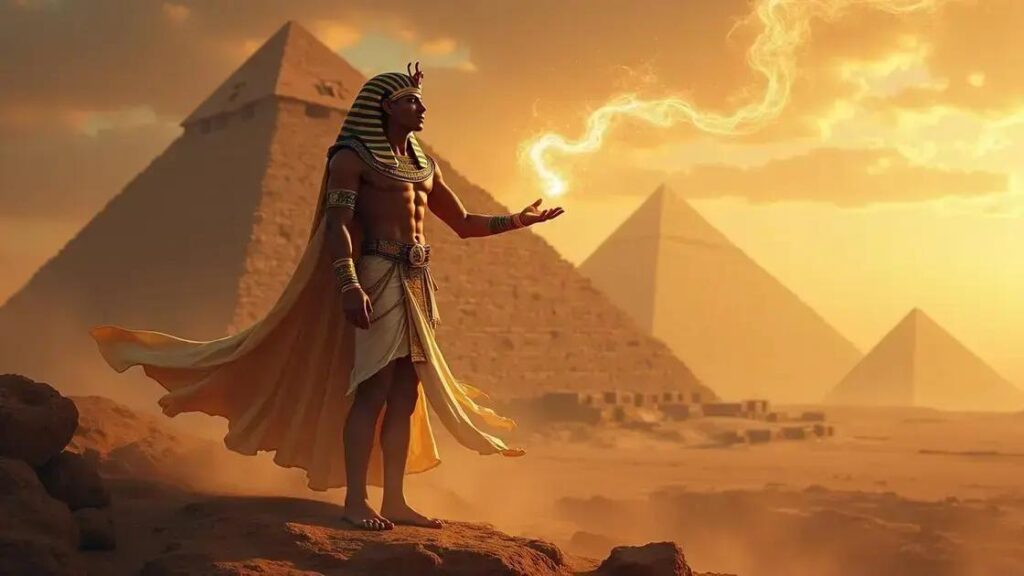The Egyptian Pharaohs were known for their clever tricks to maintain power, including political alliances, religious authority, and strategic economic management. Their legacy offers valuable lessons in strong leadership, cultural unity, infrastructure investment, and adaptability that remain relevant in modern governance.
The fascination with the trick of the Egyptian Pharaohs continues to captivate audiences worldwide. Scholars and historians have scrutinized various techniques used by these ancient leaders, unveiling secrets that have stood the test of time. In this article, we delve into what experts say about the cunning strategies employed by the Pharaohs that not only solidified their power but also left a lasting legacy on civilization. Through expert opinions and historical context, we’ll explore the depths of their influence and what modern society can learn from these enigmatic figures.
Understanding the Trick of the Egyptian Pharaohs
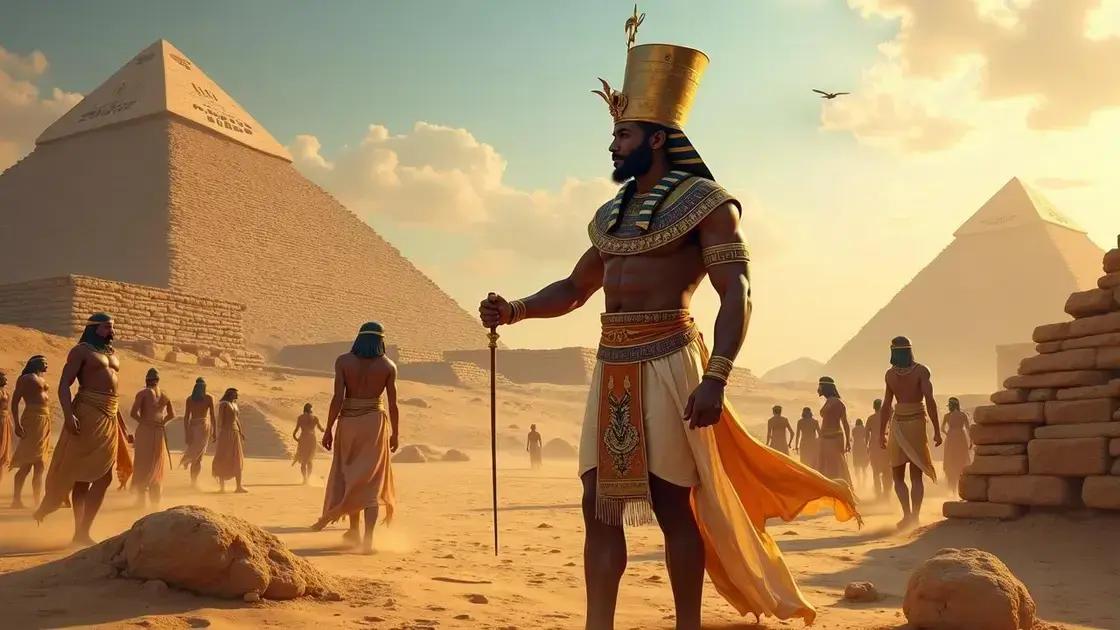
Understanding the trick of the Egyptian Pharaohs requires us to delve deep into the methods they used to maintain power and influence. This ancient civilization was renowned for its remarkable achievements, including stunning architectural feats and advanced societal organization. The Pharaohs employed various techniques that were not only clever but also deeply rooted in their culture and beliefs.
Manipulation of Resources
One major trick involved the manipulation of resources. Pharaohs controlled vast amounts of land and labor, allowing them to build monumental structures such as the Great Pyramid of Giza. By organizing the workforce efficiently, they created a sense of unity and purpose among their people.
Religious and Cultural Influence
Religion played a pivotal role in maintaining their authority. Pharaohs were viewed as gods on earth, which helped consolidate their power. They used religious ceremonies and festivals to reinforce their divine status, drawing the populace closer while suppressing dissent.
Strategic Diplomacy
Pharaohs also employed strategic diplomacy with other nations. By forming alliances through marriage or trade agreements, they expanded their influence without direct conflict. This advanced understanding of politics showcases their cunning nature and desire to secure their reign.
Propaganda and Historical Record
Propaganda was another vital tool in their arsenal. Pharaohs commissioned grand monuments and tombs that celebrated their achievements, ensuring that their legacy would be remembered long after their deaths. These representations of strength and divine right reinforced their control over their subjects.
In summary, the tricks of the Egyptian Pharaohs were multi-faceted strategies that combined resource management, religious influence, diplomatic maneuvers, and effective propaganda. This complex interplay allowed them to maintain their grip on power and achieve remarkable longevity in their rule.
Historical Context of Pharaohs’ Secrets
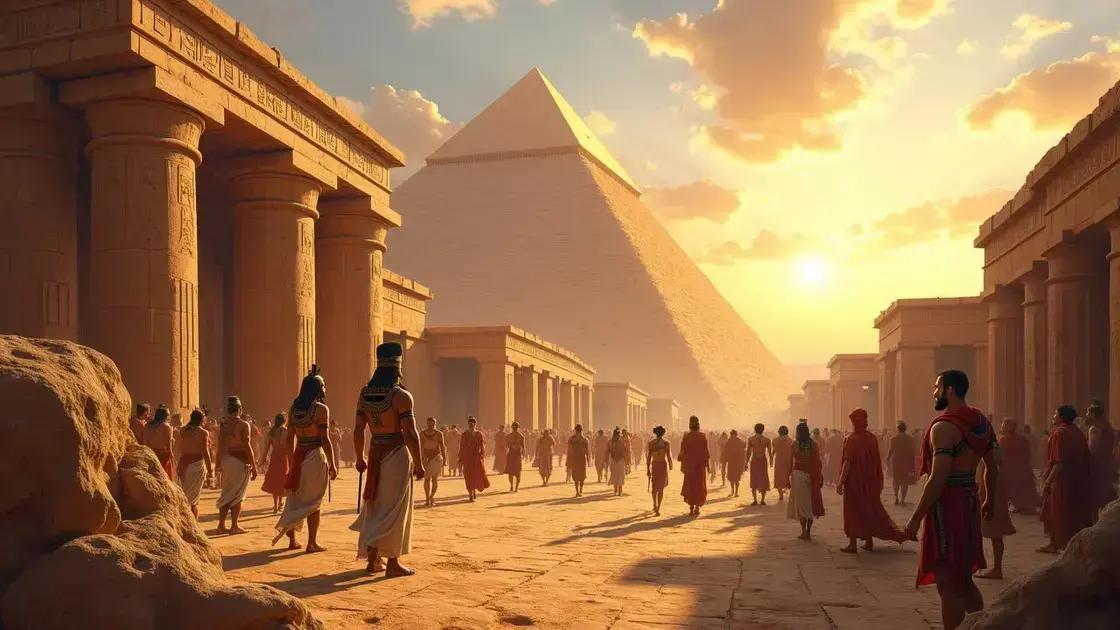
The historical context of Pharaohs’ secrets is rich and layered, shaped by thousands of years of civilization. Ancient Egypt thrived along the Nile River, where agriculture and trade flourished. This prosperity allowed Pharaohs to accumulate wealth and power. Understanding the tricks used by these rulers requires a look back at their unique societal structure.
Religion and Politics
Religion was central to the governance of Ancient Egypt. Pharaohs were considered divine figures, a direct link between the gods and the people. This perception allowed them to maintain control by leveraging religious rituals and beliefs. Their secrets often involved not just political maneuvering but also the manipulation of religious narratives.
Social Hierarchy
The social structure played a significant role in the Pharaohs’ strategies. Society was organized into layers, with the Pharaoh at the top, followed by nobles, priests, and laborers. By keeping the common people uninformed and focused on their daily struggles, Pharaohs could implement their policies without fear of rebellion.
Architectural Achievements
A stunning example of the Pharaohs’ manipulation of labor is evident in their architectural achievements. Massive projects like the pyramids required vast resources and a steady workforce. Secrets behind these constructions often involved complex logistics and careful planning that showcased their power and left lasting legacies.
Military Control
Military might was also crucial. Pharaohs often secured their reign through strength, using their armies to protect borders and suppress dissent. The threat of military action ensured compliance from subjects, impacting the secrets they employed when dealing with internal and external opponents.
The historical context shapes our understanding of the Pharaohs’ secrets. Their ability to intertwine religion, social hierarchy, architecture, and military strength created a powerful framework that allowed them to govern effectively and influence their people.
Expert Opinions on Their Techniques
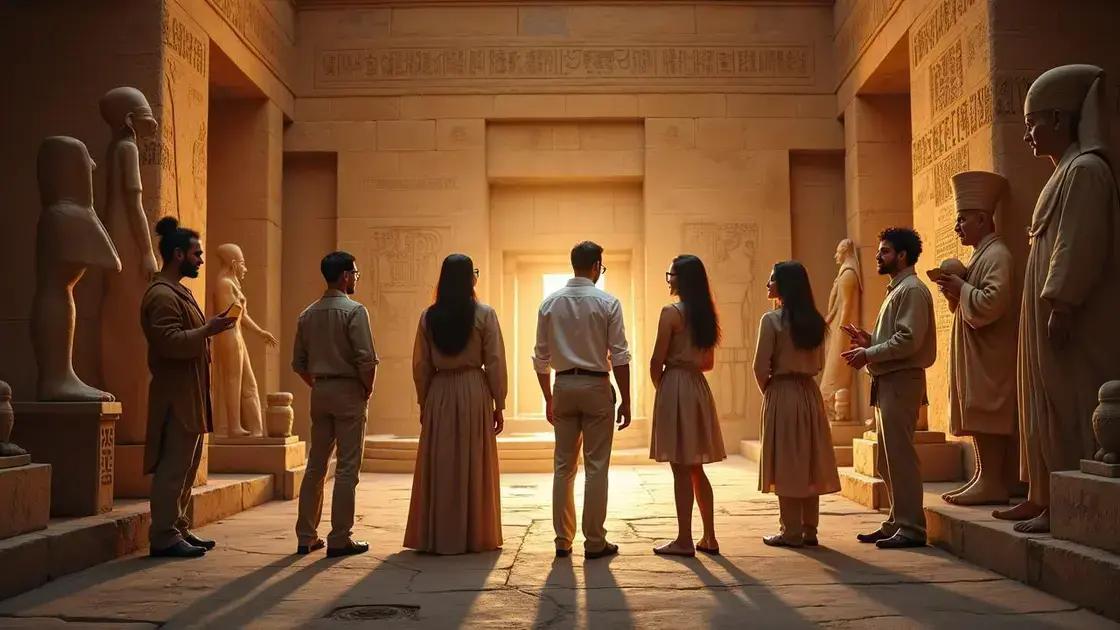
Experts have dedicated years to studying the techniques employed by the Egyptian Pharaohs. Their insights reveal a complex web of strategies that contributed to the longevity and stability of the Pharaohs’ reign. Through rigorous archaeological research and historical analysis, scholars have uncovered how these ancient rulers maintained their power.
Political Manipulation
One key observation among experts is the use of political manipulation. Pharaohs often created alliances through marriage or strategic partnerships. By marrying into powerful families from other regions, they secured loyalty and support, diminishing the likelihood of rebellion.
Religious Authority
Experts stress the importance of religious authority in Pharaohs’ techniques. They positioned themselves as intermediaries between the gods and the people, using religious ceremonies to legitimize their rule. This connection to the divine allowed them to wield immense control over the populace.
Economic Strategies
Economically, Pharaohs adopted strategies that promoted stability. Experts note that they implemented effective tax systems and agricultural policies, helping to ensure a consistent food supply. By managing resources wisely, they bolstered their power and demonstrated their capability as rulers.
Architectural Mastery
Architectural achievements also exemplify the ingenuity of the Pharaohs. Many experts highlight that these structures served not just practical purposes, but also symbolized their power. The construction of temples and pyramids required incredible ingenuity and cooperation, reflecting the strength and unity of Egyptian society under their leadership.
Overall, expert opinions shed light on these multifaceted techniques that exemplify the wisdom and foresight of the Egyptian Pharaohs. Their innovative approaches in politics, religion, economics, and architecture allowed them to maintain a robust and enduring civilization.
Legacy and Impact: Lessons from the Pharaohs
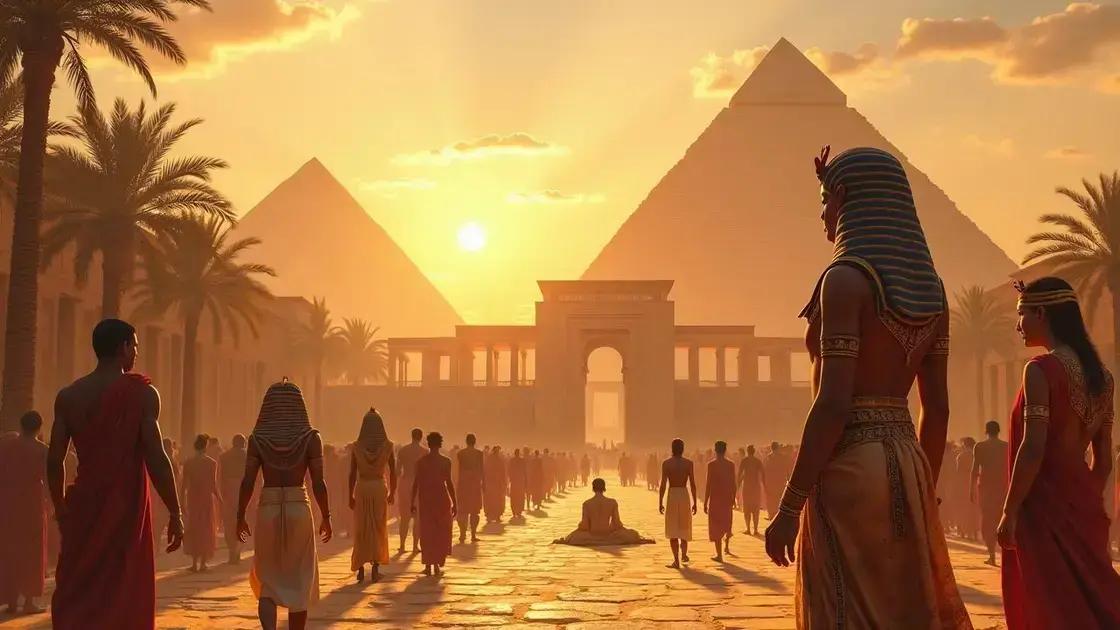
The legacy of the Egyptian Pharaohs is profound, offering valuable lessons even today. Their reign, marked by impressive achievements, provides insight into effective leadership, governance, and cultural development.
Strong Leadership
A key lesson from the Pharaohs is the importance of strong leadership. Effective communication and decisive actions helped maintain order and encourage productivity. By presenting themselves as divinely chosen rulers, they inspired loyalty and commitment from their people.
Cultural Unity
The Pharaohs also embraced cultural unity. They promoted art, music, and literature, creating a rich cultural tapestry that fostered national identity. This sense of belonging contributed to a stable society, illustrating that culture can unify people under a common purpose.
Infrastructure Development
Infrastructure laid the foundation for economic stability. The construction of temples, roads, and irrigation systems enabled trade and agriculture to flourish. This highlights the necessity of investing in infrastructure to support long-term growth and societal well-being.
Adaptability and Resilience
Finally, adaptability and resilience were crucial in the Pharaohs’ reign. They faced challenges such as invasions and resource scarcity, but their ability to adapt to changing conditions allowed them to thrive. Learning from setbacks can lead to stronger future strategies.
In summary, the impact of the Pharaohs is evident through their strong leadership, cultural unity, infrastructure development, and adaptability. These lessons are not just a part of history; they remain relevant for modern society.
Reflecting on the Legacy of the Pharaohs
The exploration of the tricks and techniques of the Egyptian Pharaohs reveals invaluable lessons in leadership, governance, and cultural development. Their adept use of political manipulation, religious authority, and strategic economic practices not only marked their reign but also set a framework for future societies.
By studying their legacy, we recognize the power of strong leadership and the importance of cultural unity in building a stable society. The Pharaohs’ commitment to infrastructure development demonstrates that foundational investments are crucial for sustained growth.
Additionally, their adaptability and resilience in the face of challenges remind us that flexibility is key to overcoming obstacles. These timeless lessons from the Egyptian Pharaohs continue to resonate, inspiring modern leaders to innovate and forge prosperous societies.
Embracing these insights can empower individuals and communities today, encouraging a deeper understanding of our historical roots while guiding us toward a brighter future.
FAQ – Frequently Asked Questions about the Egyptian Pharaohs
What were the main tricks used by the Egyptian Pharaohs to maintain power?
The Egyptian Pharaohs employed various tricks, including political alliances, strategic marriages, religious authority, and economic management to solidify their power.
How did the Pharaohs use religion to their advantage?
Pharaohs presented themselves as divine figures, utilizing religious ceremonies to legitimize their authority and strengthen their connection with the people.
What can modern leaders learn from the legacy of the Pharaohs?
Modern leaders can learn the importance of strong leadership, cultural unity, infrastructure investment, and the ability to adapt to changing circumstances.
How did the Pharaohs manage their economy?
Pharaohs implemented effective tax systems and agricultural policies, ensuring a stable food supply and economic growth during their reign.
What role did architecture play in the Pharaohs’ strategies?
The construction of monumental structures like temples and pyramids symbolized the Pharaohs’ power and served both practical and propaganda purposes.
Why is studying the Pharaohs important for understanding history?
Studying the Pharaohs provides insights into early governance, societal organization, and cultural development, helping us understand the foundations of modern civilization.

